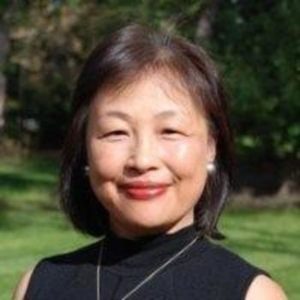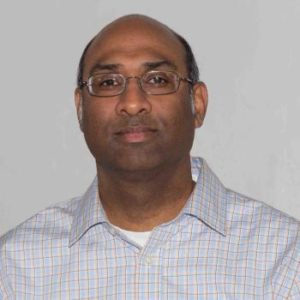
Special PHIND Seminar presented by Dr. Ann Hsing
Title: Stanford WELL for Life Study: A Global Study of Precision Well-being
Speaker: Ann Hsing, PhD
Professor of Medicine
Stanford Prevention Research Center
Stanford Cancer Institute
Department of Health Policy and Research (Epidemiology), by courtesy
Bio: Dr. Ann Hsing is a professor of medicine at Stanford University and co-leader of the population Sciences Program at Stanford Cancer Institute. She is also a professor at Stanford Prevention Research Center and in the Department of Health Research and Policy (Epidemiology, by courtesy). In addition, Dr. Hsing is a faculty fellow for the Center for Innovation in Global Health as well as the Center for Population Health Sciences (PHS) at Stanford Medicine, where she chairs the Pacific Rim Alliance for Population Health, a new multidisciplinary initiative aimed at improving health in the Pacific Rim. Prior to joining Stanford Medicine, Dr. Hsing served as Chief Scientific Officer at the Cancer Prevention Institute of California, a role she assumed after retiring from her post as a tenured intramural investigator at the National Cancer Institute where she served for 23 years. Dr. Hsing received her PhD in epidemiology from the Johns Hopkins University and her master’s degree in biostatistics from the University of California at Los Angeles. At Stanford, she serves as the Principal Investigator of WELL Asia, including longitudinal cohorts in China, Taiwan, and Singapore to investigate socio-behavioral, biochemical, and molecular determinants of well-being. Dr. Hsing has published over 295 peer-reviewed papers and mentored over 65 post-doctoral fellows and junior faculty. In addition to science, Dr. Hsing’s passion is training the next generation of scientists and helping young people succeed in realizing their dreams.
Abstract: As the leader in well-being research, Stanford Prevention Research Center (SPRC) defines well-being as the holistic synthesis of a person’s biological, psychological, and spiritual experiences, resulting from interplay between individuals and their social, economic, and physical environments, that promote living a fulfilling life. Our vision is to improve and sustain health and well-being globally and our mission is to accelerate the science to enhance well-being. To accomplish this, we established the Stanford WELL for Life Study, an international study that uses novel methods to define, assess, and promote the multiple dimensions of well-being in the U.S. and globally. The Stanford WELL for Life Study uses a data-driven approach to define and measure well-being, identify factors related to well-being, and evaluate the impact of interventions on well-being. Currently, there are five study sites—the San Francisco Bay Area, China (Hangzhou), Taiwan (Taipei), Singapore, and Thailand (Bangkok)—with more than 24,000 individuals enrolled to date. We have collected data on 400-1,000 variables per individual and obtained biospecimens from 80% of participants for future molecular investigations. To assess well-being, SPRC developed a de novo multi-dimension survey (the Stanford WELL for Life Scale) that measures ten domains of well-being and a total well-being score. These ten domains, which emerged from our unique and extensive qualitative data, include: social connectedness, lifestyle and daily practices, stress and resilience, experience of emotions, physical health, purpose and meaning, sense of self, financial security and satisfaction, spirituality and religiosity, exploration and creativity. At the PHIND seminar, I will share with you the genesis and evolution of the Stanford WELL for Life Study and our exciting preliminary data.

PHIND Seminar August
Mehmet Ozgun
“Extracellular Vesicles for Broad Applications in Medicine and Cancer”
About Mehmet O. Ozen, PhD
Dr. Ozen is a Postdoctoral Research Fellow at Canary Center for Cancer Early Detection / Radiology Department at Stanford University. He works with Prof. Utkan Demirci on simple solutions for complex problems in medicine, combining microfluidics and bioengineering principles. He received his BS and PhD in Bioengineering from Ege University.
Abstract
Extracellular vesicles (EVs) are lipid bi-layered nanoparticles shed from the cells that carry RNA, DNA, transmembrane and cytosolic proteins. The variety in EV size, cargo and origin attracted researchers to decipher the mechanisms that have been involved in packaging, secretion, uptake and roles of EVs on cells in vivo and in vitro, lightening the path for biomarker studies for diagnosis, prognosis, therapy and therapy monitoring. They are one of the many means that cells use to communicate with neighboring and distant cells and tissues. With improvements in next-generation sequencing technologies and increased resolution of mass spectrometry for proteomic analysis, EVs have been shown to take role in angiogenesis, epithelial-to-mesenchymal transition, stemness in cancer, malignancy, metastasis and drug resistance.
Although exosomes show unprecedented promising advantages over other biotargets in the circulation for clinical use, a major challenge rapidly emerging in the field of EV utilization for clinical and non-clinical applications is the absence of reproducible, inexpensive and robust tools for efficient sorting and isolation of EV populations at a high yield. The field lacks a clear consensus over an optimum approach or a tool for isolation of EVs avoiding contamination with many other proteins and such other biostructures and reproducible procedures for downstream analysis of EV cargo and content. Existing approaches for EV isolation include a variety of methods. Additionally, methods for the exosome-derived analyte isolation, library preparation for sequencing, and downstream analysis including genomic, proteomic and metabolic analysis are highly varied. Hence, there is a need for well-developed experimental tools, interlaboratory evaluations and in-depth descriptions of experimental steps and designs to ensure reliable, robust and reproducible experiments and tools.
In this talk, we will describe a new technique, i.e., Exosome Total Isolation Chip (ExoTIC), that is developed in our lab to isolate EVs and EV subpopulations from a variety of sample types including plasma and culture media. We will present further downstream genomic and proteomic analysis of these EVs focusing on applications in cancer and cardiovascular disorders.

Stanford Radiology Diversity Initiative
Diversity is essential to the progress, growth, and prosperity of Medicine and its microcosmoses. The Stanford Radiology Diversity Initiative aims to democratize Medicine by assembling and maintaining a critical mass of diverse faculty with far-reaching backgrounds, experiences, and ideas. Diversity is critical for our ability to serve patients in a multi-cultural environment, to provide inspiring role models for our trainees, to unfold discoveries at the interface of different disciplines, to address challenges in our health care system and to cure humanity – one patient at a time.
11:00am-12:00pm – Panel Discussions
12:00pm-1:00pm – Grand Rounds
1:00pm-2:30pm – Diversity Food Fair
2:30pm-3:30pm – Imposter Syndrome Workshop
3:30pm-4:30pm – SMAC symposium
View event details – http://med.stanford.edu/radiology/events/diversity-fair.html

PHIND Seminar Series October: ‘Progression of Clonal Hematopoiesis of Indeterminate Potential to Acute Myeloid Leukemia’
Ravi Majeti, MD, Ph.D.
Professor of Medicine
Chief, Division of Hematology
Institute for Stem Cell Biology and Regenerative Medicine
Stanford University
Munzer Auditorium (B060), Beckman Center
11:00am-12:00pm – Seminar and Discussion
12:00pm-12:15pm – Reception (light refreshments provided)
RSVP Here: https://www.onlineregistrationcenter.com/register/222/page1.asp?m=298&c=39
ABSTRACT: Myeloid malignancies are cancers of the blood lineage including myeloproliferative neoplasms (MPN), myelodysplastic syndromes (MDS), and acute myeloid leukemia (AML) with more than 40,000 new diagnoses annually in the United States. These diseases cause significant morbidity and mortality due to associated bone marrow failure leading to anemia, bleeding, and infections, and are currently treated with targeted therapies, chemotherapy, and allogeneic bone marrow transplantation. Next generation DNA sequencing has determined the spectrum of mutations associated with these cancers and has found that most cases are associated with multiple mutations that cooperate to cause disease. In our prior studies, we determined that these mutations are serially acquired in clones of self-renewing pre-cancerous/pre-leukemic blood stem cells. Separate studies analyzed blood sequencing data from large cohorts of individuals without disease and found these pre-leukemic mutations occur in the general population with increasing frequency and incidence with age. As only a minor subset of these individuals eventually progressed to develop myeloid malignancy, this entity was termed clonal hematopoiesis of indeterminate potential (CHIP). One major issue with implications for the transition from health to disease is to understand what factors influence the progression from CHIP to myeloid malignancy. In order to investigate this question, we have developed models for CHIP/pre-leukemia through the CRISPR-mediated engineering of normal human blood stem and progenitor cells. By introducing mutations in the TET2 and ASXL1 genes that are commonly mutated in CHIP, we have established models for the cell intrinsic processes of progression to myeloid malignancy and are now poised to examine cell extrinsic processes that can affect such progression. Establishing these models is key to investigating measures to eventually prevent development of myeloid malignancy.

PHIND Seminar Series November: ‘ What You Always Wanted to Know about Economics, Payer Coverage, and Big Data for Precision Health – But Were Afraid to Ask’
Kathryn Phillips, Ph.D.
Professor of Health Economics
Founding Director of the UCSF Center for Translational and Policy Research on Personalized Medicine (TRANSPERS)
Department of Clinical Pharmacy
UCSF
Li Ka Shing Center, LK101
11:00am-12:00pm – Seminar and Discussion
12:00pm-12:15pm – Reception (light refreshments provided)
RSVP Here: https://www.onlineregistrationcenter.com/KathrynPhillips
ABSTRACT: Precision Health offers an opportunity to achieve “high value care” through innovative approaches. However, in order to fulfill this objective, we must demonstrate its economic value, someone must be willing to pay the costs, and there has to be data available to provide the needed evidence. In this talk, I will draw on my research over the past decade examining (1) how to measure the value of complex technologies such as Precision Health, (2) what payers cover and how they decide to provide coverage, and (3) how Big Data can be leveraged. I will also describe “lessons learned” about successful adoption from working with dozens of start-ups, VCs, and biotech companies. The talk will illustrate these issues using the case study of “liquid biopsy” – a potentially transformative technology that illustrates both the opportunities and challenges for Precision Health.

